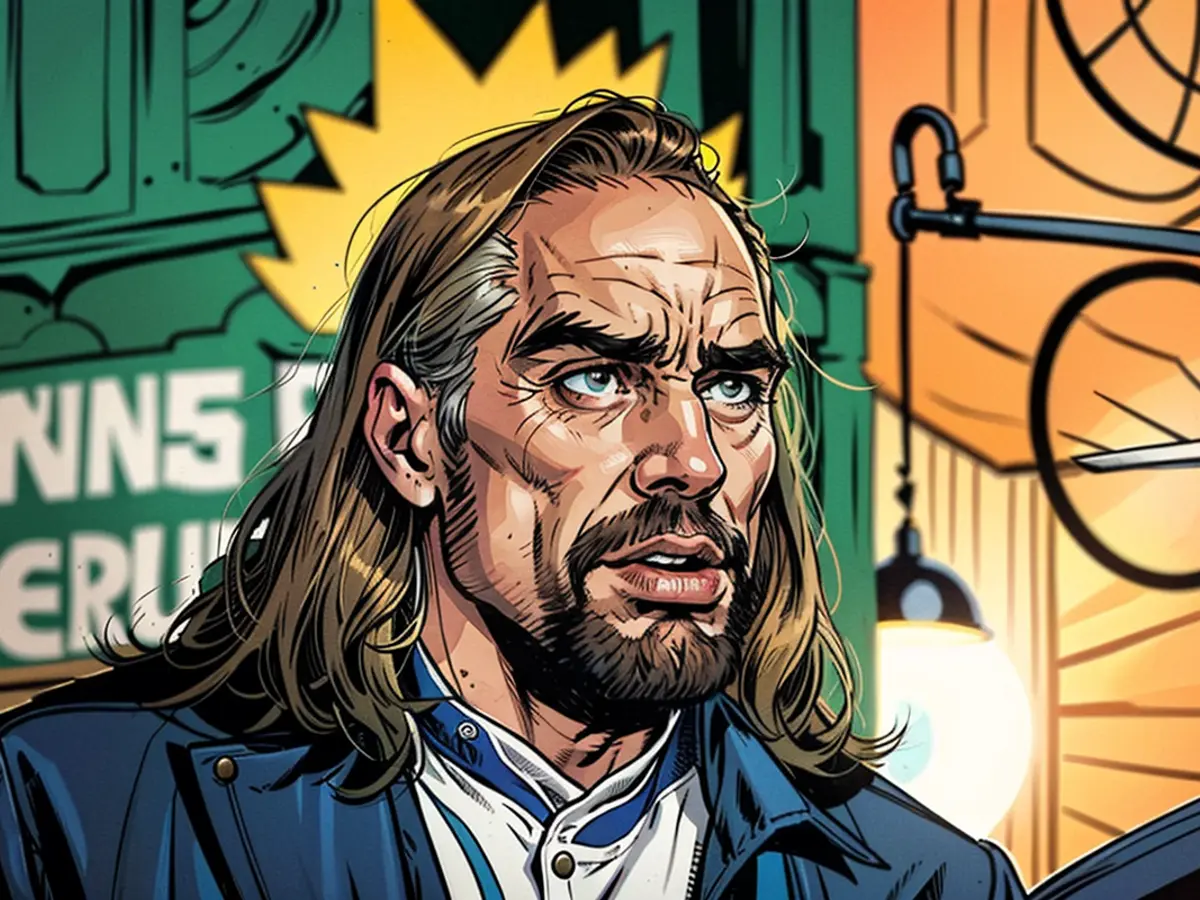"The Green Party has committed some errors that can't be dismissed lightly"
Europe's recent elections brought about a dramatic dilemma for the Greens. Anton Hofreiter, a top politician, has his own take on the reasons for the party's sharp decline.
Days after the European elections, the familiar squabbles over the pension package resurface. Greens' Politician, Anton Hofreiter, appears as a guest on ZDF's program "Markus Lanz". He remains optimistic as Munich experienced a turnaround. In both sports and politics, the city witnessed defeats transformed into gains.
"In this fast-paced world, lots can happen in five years," says Hofreiter while discussing the reasons behind the party's losses during the European elections - a rather drastic decrease in the voter turnout for the Greens in comparison to the 2019 elections. However, he insists that it's not worth dwelling on it. As per his observation, a dip in voter share is evident in the 2021 federal elections too. Using this perspective, it's not as discouraging, Hofreiter expects.
Citing the reasons for the decline, Hofreiter mentions some oversight. "The Greens have made some blunders that cannot be disregarded," he states. But what are these errors?
Hofreiter pinpoints two main errors: The unpopular design and communication of the heating law, and the fact that the provocation was allowed. This, he believes, has led to a two-pronged issue - ideological yet deficient in execution - a dreadful combination. The entire party is affected by these issues, it's not linked to any single person.
Host Markus Lanz perceives Hofreiter's explanation as overly defensive. He questions if Hofreiter has no answer to this. For Hofreiter though, he finds Lanz's doubts unfounded: "Overall, this makes for a pretty good explanation," he continues.
Regarding the Greens' migration policy, the topic of the majority voting decisions, Lanz inquires. He is reminded of the central discussion by Martin Machowecz, the Deputy Editor-in-Chief at Zeit. "No," Hofreiter firmly asserts, "that's not what triggered the losses for the Greens." It pertains to a general dissatisfaction with the traffic light parties and the Union-"
Eva Quadbeck, Managing Editor at Redaktionsnetzwerk Deutschland, has a different viewpoint. "Voters opt for a party because they believe they can resolve issues. And migration is right now the primary societal concern. People don't believe the Greens can solve this issue."
In general, public conviction in the Greens' and other traffic light parties, and the Union's problem-solving capacities doesn't exist. This cause voters to approach the extremist groups. While they may not possess the ability to resolve issues, they exude a display of protest or radicalism that draws crowds to the far-right.
"We face an issue of right-wing extremism in society that's been neglected for years," Hofreiter points out. Up to two-thirds of AfD voters regard the party's statements as credible. This disturbs Martin Machowecz somewhat. "No," he replies, "in Saxony, it's not about migration, but the general decline of traffic light parties."
Lanz leads the conversation to deporting radicalized Islamists, like the recently charged murderer in Mannheim, Hofreiter disagrees. "If we deport this Islamist criminal as a convicted murderer in Germany, he might receive a reward from the Taliban who govern Afghanistan. Then, he could return to Germany after serving his jail time," Hofreiter suggests.
Adamant in his views, Hofreiter advocates for trying the alleged murderer in Germany, presumably with a lifetime sentence, and possibly followed by preventive detention. Lanz reckons this might not be the best idea as it requires legal conviction first.
After the traffic light coalition's defeat during the European elections, Machowecz sees one consequence- a fresh election. According to Machowecz, this would enable addressing federal political problems while simultaneously providing a platform for a political reckoning. The state elections in eastern Germany would focus solely on state-related topics.
Yet, Hofreiter isn't keen on the idea of new elections. He shares, "I find it hard to schedule fresh elections, as it inevitably becomes an all-out crisis, and we already face enough hardships." Instead, he asks the traffic light politicians to join forces and work towards finding middle grounds. This translates to avoiding making bold demands. The Greens have found it challenging in this aspect. Ideally, disagreements should take place out of reach from public ears. Though, if it cannot be kept private, then less time should be dedicated to it.
Read also:
- Anton Hofreiter, a prominent member of Alliance 90/The Greens, discussed the party's decline in the European elections on Markus Lanz's show, attributing the loss to several mistakes, including the unpopular design and communication of the heating law and allowing provocation.
- The right-wing extremist party AfD gained traction in the European elections, with up to two-thirds of its voters considering its statements credible. This escalating issue of extremism, according to Hofreiter, has been a concern that's been neglected for years.
- Regarding the Greens' migration policy, Hofreiter refuted Markus Lanz's suggestions that it might have contributed to the party's losses, stating instead that it was a general dissatisfaction with the traffic light parties and the Union that led voters to seek alternatives.








